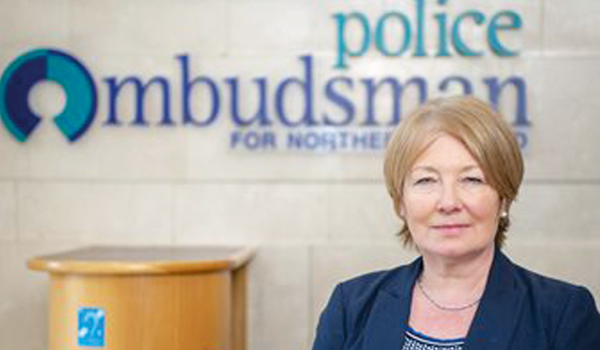RUC investigation into 1989 murder ‘seriously defective’, says Police Ombudsman
The Police Ombudsman for Northern Ireland has concluded that the RUC investigation into the 1989 murder of John Devine was “seriously defective”.
In a report published today (June 12), Police Ombudsman Marie Anderson, highlights a series of failures, concluding that a man prosecuted for Mr Devine’s murder almost three decades later, should have been arrested and interviewed as a suspect at the time.
She is also critical of the wider suspect and arrest strategy, which resulted in police taking action against only two people on a list of 36 persons of interest, despite intelligence and other information which linked individuals to the murder.
The report identifies that house-to-house and witness enquiries were not adequately pursued and led to missed opportunities to gather evidence which may have assisted police to identify suspects or open up lines of enquiry, and that all available forensic opportunities were not fully exploited.
The investigation also found no evidence that the RUC alerted Mr Devine to the fact that his date of birth had been linked to the name John Devine, in a document found in two separate loyalist paramilitary intelligence caches.
Although the document contained a different address and photo, the police did not consider the potential risk presented to Mr Devine, including whether a ‘threat to life’ warning was appropriate.
“Given the available evidence and other information gathered during my investigation, I consider the original RUC investigation to be seriously defective, and not capable of leading to the identification of those responsible,” said Mrs Anderson.
John Devine, a married father of three, was murdered in his home at Fallswater Street, Belfast, at approximately 2pm on Sunday July 23, 1989.
Mr Devine and his 13-year-old son, Sean, were alone in the house, when armed men entered through the front door and shot him a number of times at close range. He died at the scene.
Two men believed to have been involved had booked a taxi from a depot in Carlisle Circus, which took them to Richview Street, off the Donegall Road.
When they arrived, they asked the driver to park near an alley which led to the Empire Social Club. A third man got into the back seat, put a gun to the taxi driver’s head, and told him to get out. The men then used the stolen taxi to drive to Mr Devine’s home.
Mrs Anderson acknowledged that the RUC investigation of the murder was conducted at a time when policing resources in Troubles-related incidents were stretched and under significant pressure in a year when 81 people died.
The Police Ombudsman found that there was no specific intelligence available to police that, if acted upon, could have prevented the murder of Mr Devine.
However, on two occasions, the RUC recovered information from loyalist paramilitary intelligence caches, which included personal details that could have been directly attributed to Mr Devine.
The first document was recovered by police during a search in Bellevue Street off the Shankill Road on September 1, 1987, and referred to a ‘John Devine’. Although the date of birth on the document matched Mr Devine’s, the corresponding address and photograph were not his. This document was found by Police Ombudsman investigators during a search for relevant police material at Grosvenor Road Police Service of Northern Ireland station.
The same document was among firearms, ammunition, and documentation recovered by police from a house in Rockview Street in south Belfast on October 6, 1988. A number of these seized documents subsequently formed part of the Stevens Inquiry and were attributed to Brian Nelson.
“This information linked Mr Devine’s date of birth to the name John Devine. The Stevens Inquiry not only suspected that this information was being used for the purposes of targeting republicans but also that some of the information was derived from the security forces, thereby indicating an illicit source of such personal information,” said Mrs Anderson.
“My investigation found no evidence that John Devine had been advised of the potential threat to his security, or that police gave consideration to the potential risk it presented to him, including whether a ‘threat to life’ warning was appropriate.
“The Devine family have confirmed that they had no knowledge of police alerting John Devine to this threat.”
The possibility that Mr Devine may have been a victim of mistaken identity was considered by the RUC investigation team, although there are no records within the investigation papers which clarify the outcome of any related enquiries, said the Police Ombudsman.
She said a police officer at Mr Devine’s inquest also referred to the potential for the murder to have been a case of mistaken identity, and confirmed that police did not believe that Mr Devine had any connection with the republican movement. Mr Devine’s family have also refuted that he was involved with any paramilitary organisation.
“I believe that John Devine was the victim of a campaign of sectarian violence mounted against the nationalist community,” said Mrs Anderson. “Loyalist paramilitaries alone were responsible for his murder. Given the significant failings in the RUC investigation, I believe that Mr Devine’s family were failed by police in their search for the truth regarding the perpetration of his murder.”


